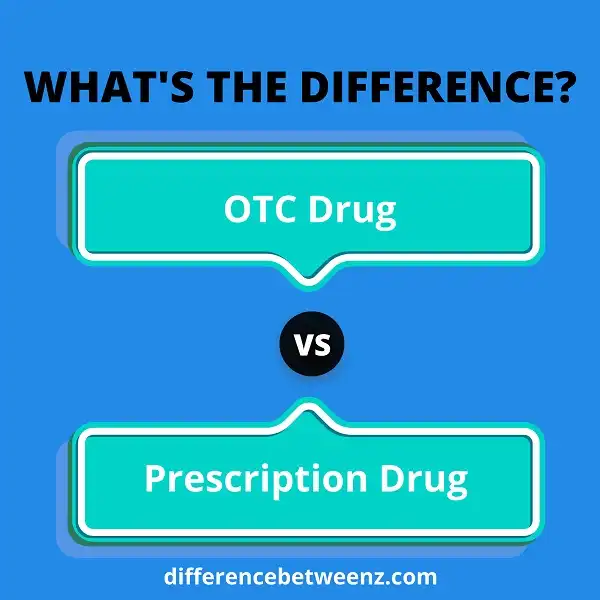Drugs can be broadly classified into two categories: over-the-counter (OTC) drugs and prescription drugs. Despite their similarities in function, there are several important distinctions between these types of drugs. This article will explore the key differences between OTC and prescription drugs.
What is an OTC drug?
OTC drugs are medicines that you can buy without a prescription from a healthcare professional. OTC drugs are safe and effective when used as directed on the label. The OTC drug market is constantly changing, and new products are available all the time. OTC drugs are classified into two categories: human use drugs and animal use drugs. Human use of OTC drugs is further divided into three subcategories: Rx-to-OTC switch drugs, OTCmonograph final drugs, and OTC new active ingredients drugs. Animal use OTC drugs are those that can be legally sold without a prescription for use in animals.
What is a Prescription drug?
Prescription drugs are medications that are specifically designed to treat a certain medical condition. They are regulated by the Food and Drug Administration (FDA) and can only be obtained with a doctor’s prescription. Prescription drugs are typically more potent than over-the-counter medications, and they are usually used to treat more serious medical conditions. Common examples of prescription drugs include antibiotics, painkillers, and antidepressants.
Difference between OTC and Prescription drugs
OTC and prescription drugs are both medicines that people use to treat illnesses and conditions. OTC drugs are available without a doctor’s prescription, while prescription drugs can only be obtained with a valid prescription from a healthcare provider.
- There are some key differences between OTC and prescription drugs. OTC drugs are generally less potent than prescription drugs, and they are typically used to treat milder conditions.
- OTC drugs are also usually taken for shorter periods of time than prescription drugs. In addition, OTC drugs are subject to less regulation than prescription drugs.
- Prescription drugs must undergo rigorous testing before they are approved for use, while OTC drugs only need to meet general safety requirements. As a result, OTC drugs may not be as effective or safe as prescription drugs.
Conclusion
The next time you are feeling under the weather, remember the difference between over-the-counter and prescription drugs. Taking the correct medication for your symptoms can help you feel better faster and ensure that your illness doesn’t get worse.


